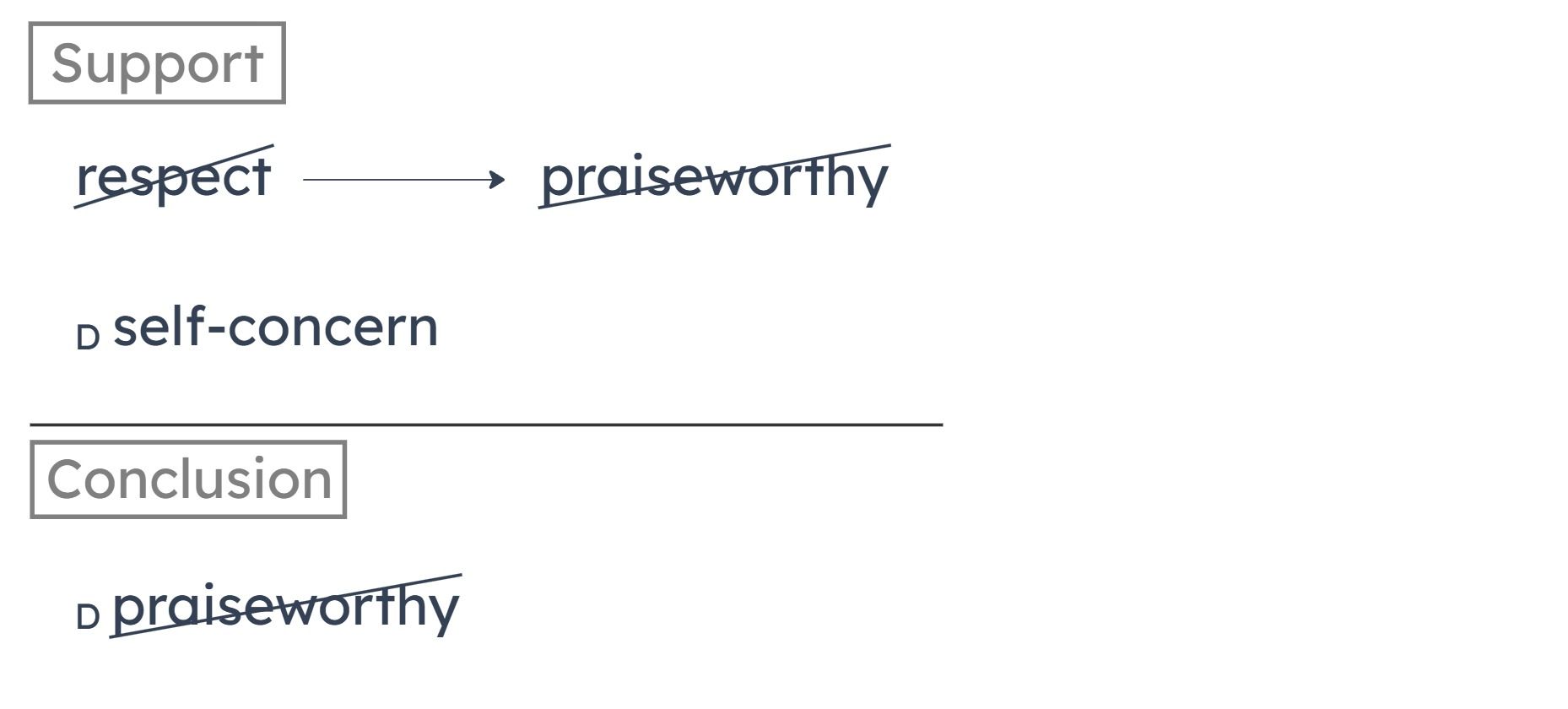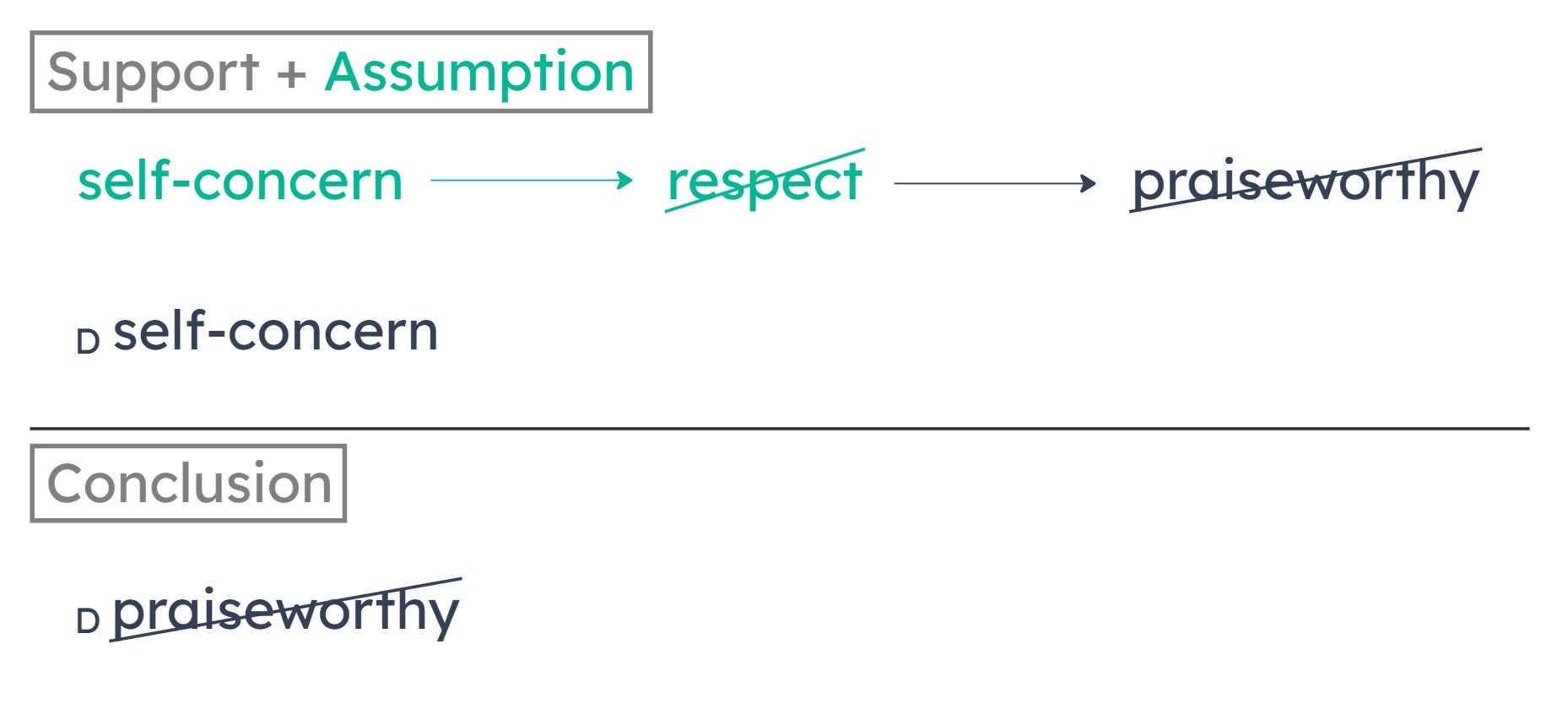A
Voters’ judgments about candidates’ debate performances rarely affect the results of national elections.
B
Blinking too infrequently during televised debates has the same effect on viewers’ judgments of candidates as blinking excessively.
C
Excessive blinking has been shown to be a mostly reliable indicator of a lack of confidence.
D
Candidates for top political offices who are knowledgeable also tend to be confident.
E
Viewers’ judgments about candidates’ debate performances are generally not affected by how knowledgeable the candidates appear to be.
Ivan: I disagree with your analysis. The country’s economy is tied to the global economy. Whatever happens to the global economy also happens here, and the global economy has slowed. Therefore, the government’s action did not cause the economy’s slowdown.
A
the economic slowdown in the country has caused people to spend less
B
the economy of the country is tied to the economies of other countries
C
raising interest rates caused a significant decrease in borrowing
D
raising interest rates caused the country’s economy to slow
E
the global economy has slowed
Lecturer: If I say, “I tried to get my work done on time,” the meanings of my words do not indicate that I didn’t get it done on time. But usually you would correctly understand me to be saying that I didn’t. After all, if I had gotten my work done on time, I would instead just say, “I got my work done on time.” And this example is typical of how conversation works.
Summary
The lecturer gives us an example of a statement that, in a conversation, contains meaning beyond the literal meaning of the words. The literal meaning of “I tried to get my work done on time” does not express that I didn’t get my work done on time. But if I made that statement, you’d be correct to understand me as asserting that I didn’t get my work done on time. This example is typical of other statements in a conversation.
Strongly Supported Conclusions
People say things that contain meanings beyond the literal meaning of the words.
A
Understanding what people say often requires more than just understanding the meanings of the words they use.
Strongly supported. We have an example of a statement that contains meaning beyond the literal meaning of the words. This was typical of conversations. So, understanding the meaning of some other things people say requires more than just the meaning of the literal words.
B
It is unusual for English words to function in communication in the way that “tried” does.
Unsupported. The stimulus gave us an example of something that is typical (usual) in conversations. There’s no support for a claim about the function of certain words being unusual.
C
Understanding what people use a word to mean often requires detecting their nonverbal cues.
Unsupported. We don’t know that understanding the meaning of the example in the stimulus requires nonverbal cues. We might get the meaning from the context in which it’s made, or from the fact the person didn’t say something else.
D
Speakers often convey more information in conversation than they intend to convey.
Unsupported. The example in the stimulus concerns a speaker who intends to express more than what the literal words mean. It doesn’t concern someone who expressed more than he intended.
E
Listeners cannot reasonably be expected to have the knowledge typically required for successful communication.
Unsupported. The stimulus doesn’t tell us anything about how likely people will interpret statements accurately. Maybe most people interpret statements in conversations accurately; there’s no evidence either for or against this possibility.
Downing was motivated by concern for his own well-being.
In order for it to be morally praiseworthy to be honest, it is necessary that the honesty be done out of respect for morality.

Another premise tells us that Downing was motivated by self-concern. Does this guarantee that he was not motivated by respect for morality? Not necessarily, since someone can have multiple motivations. To make this argument valid, then, we want to establish that if someone’s motivation is self-concern, then they cannot also be motivated by morality.
A
An action motivated by concern for oneself cannot be deserving of moral condemnation.
B
Some actions that are essentially honest are not morally praiseworthy.
C
An action performed out of respect for morality cannot also be an action motivated by concern for oneself.

D
The moral praiseworthiness of an action can be judged only according to standards that refer to the circumstances of the person acting.
E
Morality demands that one be honest, even in cases where this could be detrimental to one’s own well-being.
The other rivers might have just gotten much dirtier, while the Lalolah River stayed the same. If so, the author can’t conclude that the cleanup efforts are working.